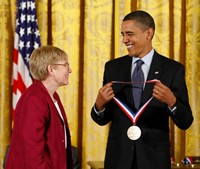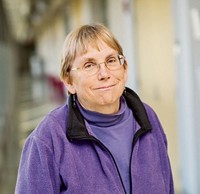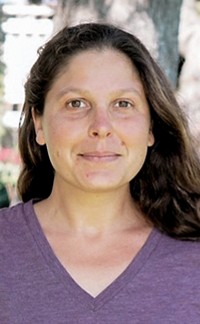Advertisement
Grab your lab coat. Let's get started
Welcome!
Welcome!
Create an account below to get 6 C&EN articles per month, receive newsletters and more - all free.
It seems this is your first time logging in online. Please enter the following information to continue.
As an ACS member you automatically get access to this site. All we need is few more details to create your reading experience.
Not you? Sign in with a different account.
Not you? Sign in with a different account.
ERROR 1
ERROR 1
ERROR 2
ERROR 2
ERROR 2
ERROR 2
ERROR 2
Password and Confirm password must match.
If you have an ACS member number, please enter it here so we can link this account to your membership. (optional)
ERROR 2
ACS values your privacy. By submitting your information, you are gaining access to C&EN and subscribing to our weekly newsletter. We use the information you provide to make your reading experience better, and we will never sell your data to third party members.
People
Nakanishi Prize
Recipients are honored for contributions of major significance to chemistry
by Linda Wang
February 9, 2009
| A version of this story appeared in
Volume 87, Issue 6
Sponsored by the Nakanishi Prize Endowment
JoAnne Stubbe remembers the day—nearly 30 years ago—when she made the breakthrough discovery that would characterize her career. “I can still remember where I was and feel the goosebumps going through me,” she says. “I was in the NMR lab in the chemistry department at Yale University, and I saw a singlet come off the NMR spectrometer, and that was it. That was the Eureka moment.”
Stubbe, Novartis Professor of Chemistry & Biology at Massachusetts Institute of Technology, is being honored for identifying the role of radical intermediates in the mechanisms of action of ribonucleotide reductases. These enzymes mediate the conversion of ribose to 2′-deoxyribose in nucleotides and play essential roles in DNA replication and repair.
Stubbe is a pioneer in the application of advanced spectroscopic techniques to the study of enzyme mechanism. In the 1980s, she proposed a unifying mechanism for ribonucleotide reductases in which a protein-based thiyl radical abstracts a hydrogen atom from the 3′-position of the ribonucleotide, initiating the formation of a series of nucleotide-based radicals and the eventual reduction of the ribonucleotide by a pair of cysteine thiols in the enzyme active site.
“By bringing her deep insight into mechanism and her creativity in experimental design into collaborations with spectroscopists, she has answered many of the most important questions regarding the mechanism of ribonucleotide reductases,” says Barbara Imperiali, Class of 1922 Professor of Chemistry & Biology at MIT.
Stubbe received a B.S. in chemistry from the University of Pennsylvania and a Ph.D. in organic chemistry from the University of California, Berkeley. She served as a postdoctoral fellow at the University of California, Los Angeles.
In 1972, Stubbe became an assistant professor in the department of chemistry at Williams College, in Massachusetts. In 1977, she moved to Yale University School of Medicine, where she was an assistant professor in the department of pharmacology. In 1980, Stubbe became an assistant professor in the department of biochemistry at the University of Wisconsin, Madison. In 1987, Stubbe became a professor of chemistry at MIT.
“Her road from an assistant professor at Williams College to a chair position at MIT has been marked with hard work, persistence, and an indefatigable desire to pursue outstanding science,” says John Kozarich, who was a colleague of Stubbe’s at Yale and is now chairman and president of ActivX Biosciences. “She is now ranked among the leading proponents of mechanistic enzymology and its application to problems of biomedical relevance.”
Daniel G. Nocera, W. M. Keck Professor of Energy and professor of chemistry at MIT, notes that Stubbe’s methods and experiments have led directly to developing drugs, such as gemcitabine for the treatment of pancreatic cancer.
Stubbe continues to work on ribonucleotide reductases. “There’s still a lot of unresolved issues completely different from what I focused on 30 years ago when I started working on this project,” she says. Although she plans to retire in a few years, Stubbe says she will never retire from doing science. “I love it,” she says. “It’s too much a part of me.”
Stubbe will present the award address before the Division of Biological Chemistry.






Join the conversation
Contact the reporter
Submit a Letter to the Editor for publication
Engage with us on Twitter